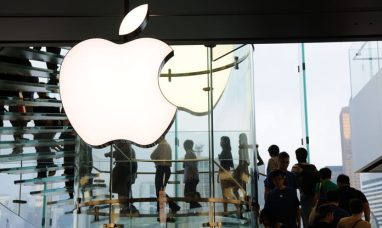Alphabet Inc. (NASDAQ:GOOG), the parent company of Google, has shelved its efforts to acquire HubSpot Inc. (NYSE:HUBS), a move that has significantly impacted the stock market. This article delves into the reasons behind the halted acquisition, the market’s reaction, and the broader implications for the tech industry.
Market Reaction to Shelved Acquisition: Shares of HubSpot, a leading customer relationship management company, plummeted by as much as 19% in New York trading on Wednesday, marking the steepest decline since 2020. The shares eventually closed down 12% at $492.31, giving the company a market value of approximately $25 billion. This sharp decline underscores the market’s disappointment with the failed acquisition talks.
Alphabet’s Initial Interest: Earlier this year, Alphabet communicated its interest in potentially acquiring HubSpot. However, according to sources familiar with the matter, the discussions never progressed to the point of detailed due diligence. The reasons behind the stalled negotiations remain undisclosed, as representatives from both Alphabet and HubSpot declined to comment.
Potential Impact of the Acquisition: Had the acquisition proceeded, it would have been one of the largest tech deals of the year, comparable to the pending $34 billion acquisition of Ansys Inc. (NASDAQ:ANSS) by Synopsys Inc. (NASDAQ:SNPS). Acquiring Cambridge, Massachusetts-based HubSpot, which specializes in CRM solutions for small to midsize enterprises, would have bolstered Alphabet’s position in a market dominated by heavyweights like Microsoft Corp. (NASDAQ:MSFT), Oracle Corp. (NYSE:ORCL), and Salesforce Inc. (NYSE:CRM).
Regulatory Hurdles: A major factor likely influencing Alphabet’s decision to shelve the acquisition is the heightened scrutiny from US antitrust regulators. The Biden Administration’s Justice Department and the Federal Trade Commission have aggressively opposed large-scale mergers and acquisitions in the tech industry. This regulatory climate has made it increasingly challenging for sizable tech companies to pursue growth through acquisitions, forcing them to reconsider their strategies.
Alphabet’s Market Performance: Despite the setback with HubSpot, Alphabet has seen its shares rise by about 37% this year. This growth reflects the company’s strong performance and investor confidence, even as it navigates a complex regulatory environment. The decision to halt the acquisition may also be seen as a prudent move to avoid potential legal battles and prolonged regulatory reviews.
HubSpot’s Stock Decline: HubSpot shares had peaked in April at approximately $682 per share but had fallen by 21% before the news of the shelved acquisition. The additional 12% drop following the announcement underscores the volatility and sensitivity of tech stocks to merger and acquisition news. Investors had likely anticipated the acquisition as a catalyst for further growth, and the failed talks have led to a reassessment of the company’s near-term prospects.
Conclusion: The shelving of Alphabet’s efforts to acquire HubSpot highlights the current challenges in the tech industry, particularly concerning regulatory scrutiny of large mergers and acquisitions. While the move has had a significant negative impact on HubSpot’s stock, Alphabet continues to perform well in the market. The decision reflects the broader trend of tech companies navigating a stringent regulatory landscape while seeking alternative strategies for growth. As the industry continues to evolve, the dynamics between major tech players and regulatory bodies will play a crucial role in shaping future mergers and acquisitions.
Featured Image: Freepik









